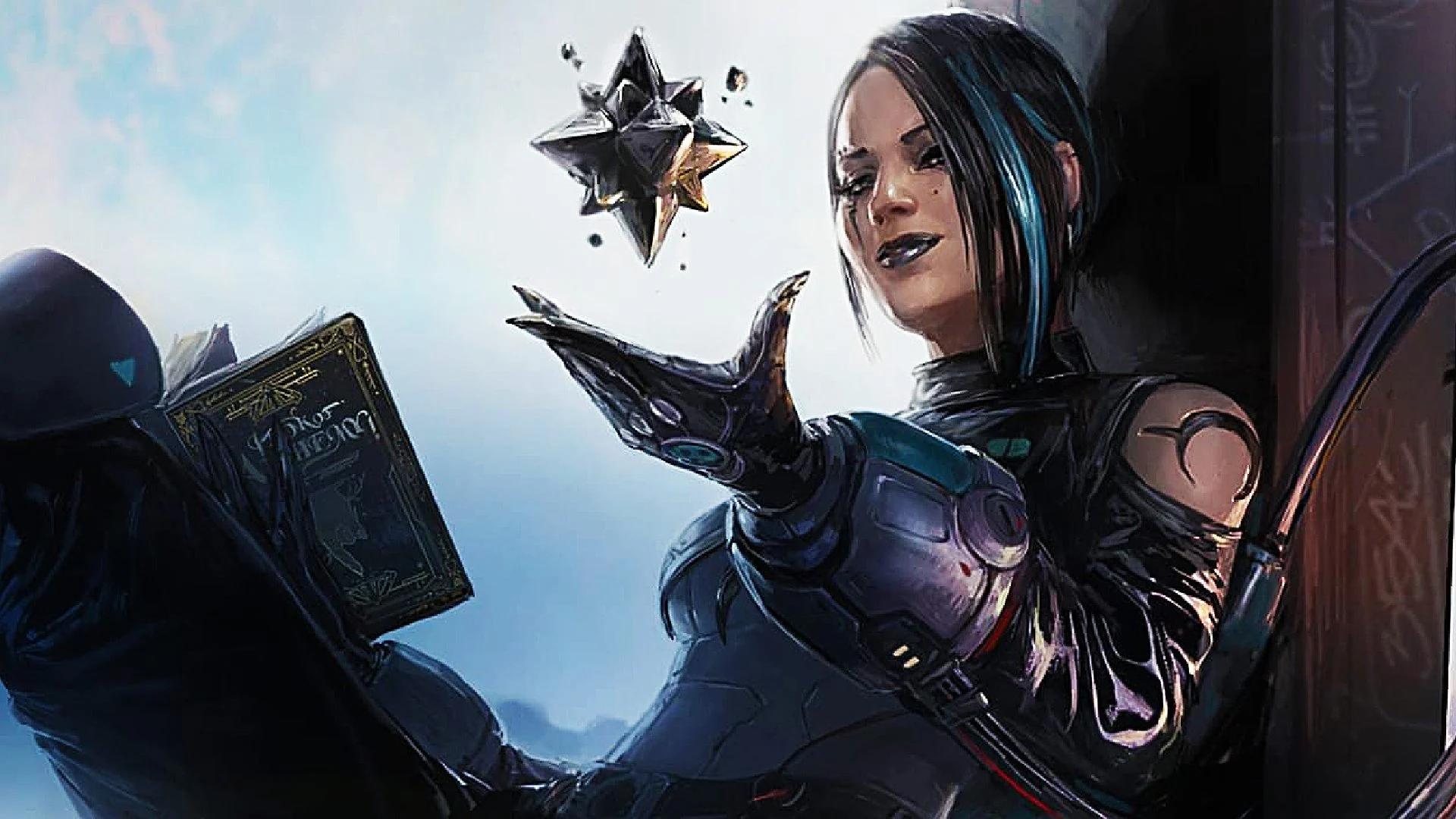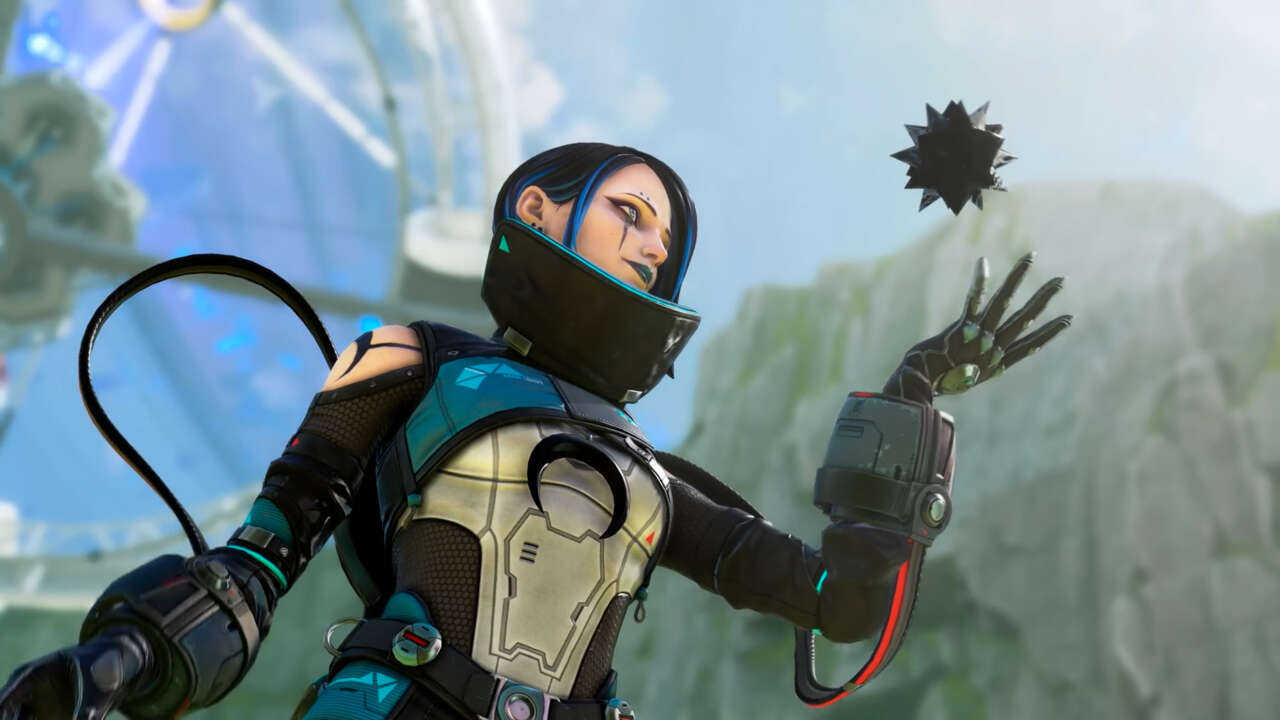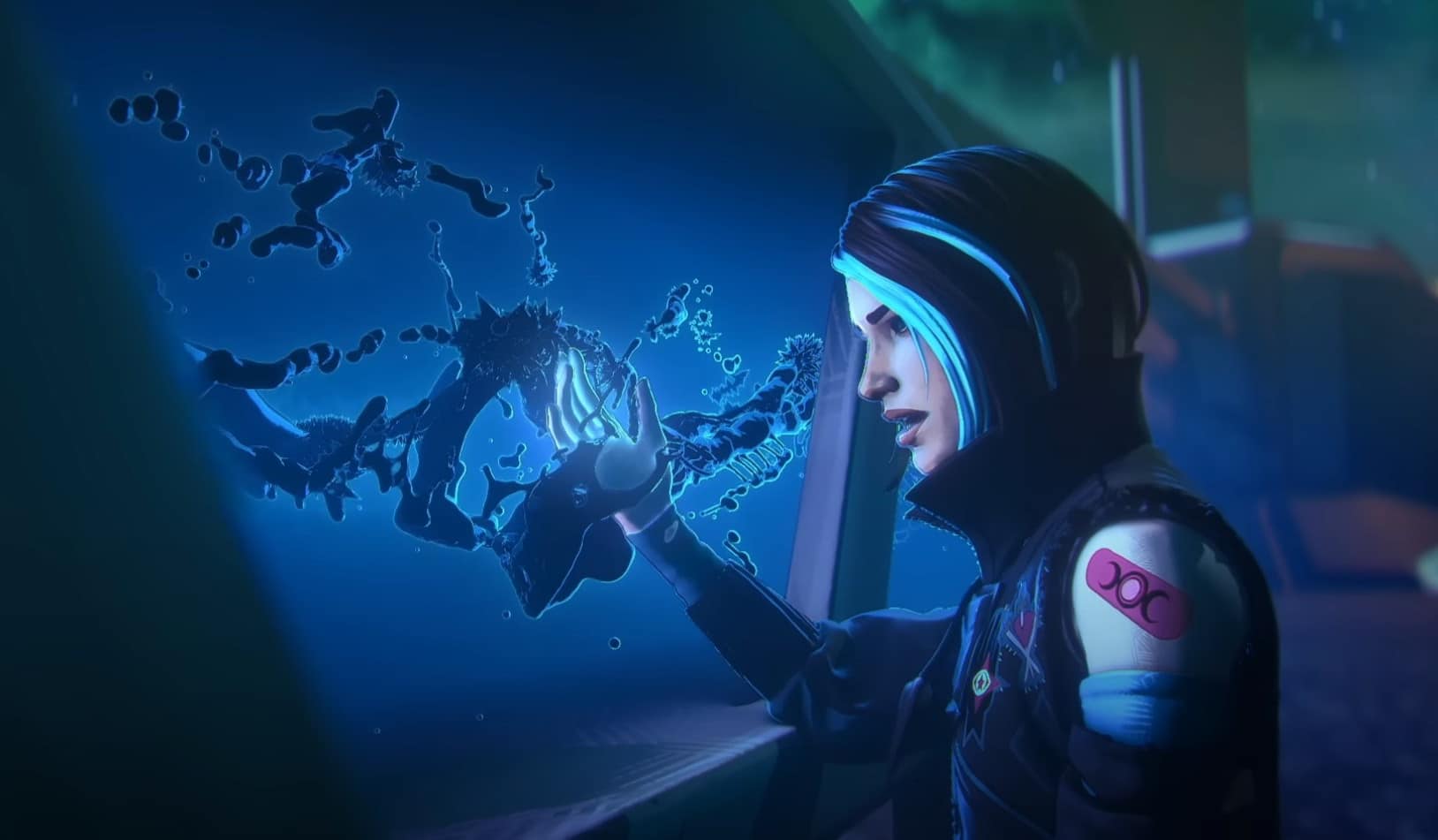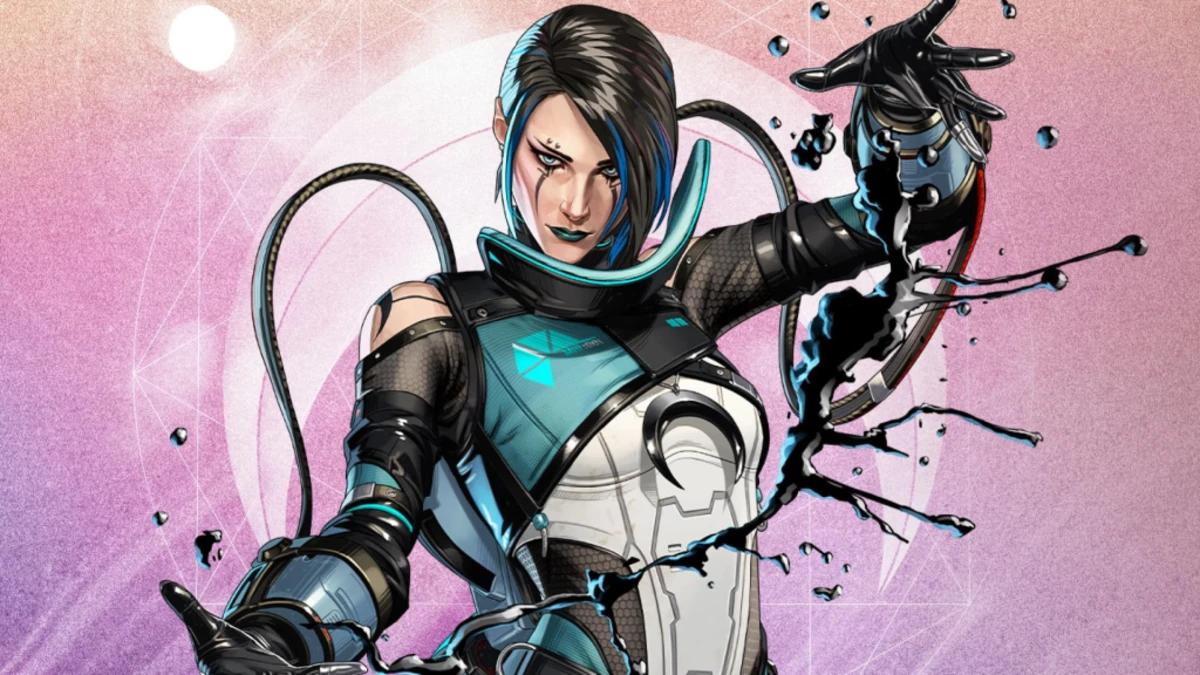Apex Legends interview – a Pride Month ‘making of’ story for Catalyst

Apex Legends Season 15 saw the introduction of Catalyst, a trans woman who uses black fluid to lock down doors and raise walls to block enemy sightlines. She joined an eclectic cast of characters, including a non-binary Hunter called Bloodhound and a lesbian fighter pilot named Valkyrie.
In the pantheon of FPS games where people play as specific heroes, Apex Legends is arguably doing the most for representation. Rather than leaving it all to headcanon, it’s explicit in crafting these identities and telling us who the characters are, while also making sure this isn’t their only defining trait. Catalyst is trans, sure, but she’s also funny, eccentric, independent, and spiritual in her own way.
For Pride Month, I got to chat with the game’s lead writer, Ashley Reed, Catalyst’s voice actor, Meli Grant, and Mirim Lee, Catalyst’s 3D character artist, to break down how Catalyst was born.
“My inclination as a creative is to be subtle,” writer Ashley Reed says. “I love that stuff. I love being like, ‘Read the subtext, dig in.’ But this is not one of those places where you can do that.

“When you're talking about inclusivity and wanting people to be seen, there can be bad actors who say, ‘No, that's not what's going on here.’ They're not coming at it in good faith. We've seen that firsthand, and we've seen it in other places as well. So we think it's important – when the point is to represent people – to come forward and say: this is who this person is.”
That intent manifested in the character’s very first trailer, where she proudly states “I’m trans”. In the context of the game itself, there are very few lines about that part of her identity – it’s just a small part. She’s more interested in witchcraft, tarot cards, environmental issues, and stargazing.
“I would hope this tells people that she is an intricate, multilayered person, but she's also not afraid of the fact that she's trans,” actress Meli Grant says. “She doesn't see that as something to be ashamed of. It's so far from the only thing that defines her, but it's also not something that she shies away from.”
Apex Legends might be a game where people take part in a vicious, televised bloodsport run by a mercenary syndicate, but it’s also a world where humanity has mastered space flight and advanced technology. This is a possible world of the future, where people are more exposed to folks who might be different from them, and they’re more accepting of various identities as a result.
“That's a fun thing we get to deal with Apex because it is in some ways very dystopian because people have gone through these horrible wars and having their lives controlled by this corporation,” Reed says. “So there are all those bad things going on, but we would like to hope at that point in history, there have been advancements in how we see each other, how we treat each other, and how we treat different identities. That's what we're shooting for: this imperfect but hopeful future.”

One important part of any trans person’s identity is obviously their name, which they’re able to choose for themselves to mark a new chapter in their lives. Because this is a different process to having a name chosen for you, the writing team at Respawn approached this in a fresh way, too. Catalyst is a stage name, which all legends have, but her chosen name is Tressa Crystal Smith. Tressa is derived from the Buddhist beliefs of the Threefold Way – ethics, meditation, and wisdom – while Crystal is a reference to her interest in witchcraft. As for Smith…
“She builds things,” Reed says. “She builds things with her abilities so she's a Smith. It gave me an opportunity to unleash my inner pre-teen. Like, what would I think would be the coolest thing ever that I would write on my Live Journal? And yeah, that's what came back.”
“I didn't think of it that that like,” Meli Grant says. “Because you can also see, with the way that ferrofluid behaves, that she could see herself as like a crystal smith. But then we also had tweets going out when she launched it like, ‘Glad to know that 500 years from now, people are still named ‘Smith’.”
The Apex Legends team works on the title with a “gameplay first” mindset, and so Catalyst’s toolset was the first thing to appear. Despite that, character artist Mirim Lee was told early on in the process that Catalyst would be the game’s first trans woman.
“When I joined the first test to make new legends, I was told it would be our first trans woman,” Mirim Lee says. “It was super clear. I was really happy that I was aware of it and had enough time to study.”

Originally, the legend was supposed to build a makeshift sniper tower for her and her allies to use as a vantage point, but that was later replaced with a large wall that blocks sightlines, as well as spike traps and the ability to block off doors. If you look at her as a character, she’s quite open about who she is, but she’s also guarded with people she doesn’t fully trust. In more ways than one, she puts up walls.
“We get the general idea of the gameplay fantasy, like what it feels like to play that character,” Reed says. “And then based on that, we're like, ‘Okay, what kind of person would do this? Who would do these things? Who would make this the core of how they play the game? And so that definitely came up as we were working on Catalyst – this a person who is a little standoffish, puts distance between them and other people, but also builds people up. We were thinking about that as we were developing the character.
“There's a story I haven't been able to tell until this recent batch of interviews, where when we sent out the audition to read, one of the lines was something like, ‘I guess I've got walls up.’ I’m like, ‘Eh? Eh?’ It wasn't it was not a very good line. Most of the people who read for it didn't really pick up on what I was going for. I'm like, wow, right. It's fine. And then I heard Meli’s audition and she just nailed the sort of self-deprecating self-awareness – but not like insecure, just like I'm stating facts. I know myself. Nailed it. And I was just like, ‘Yes! Yes!”
Mirim Lee tells me you can see this in the early character concepts, too – particularly around the face guard Catalyst uses to protect herself from ferrofluid splashback. It was specifically designed to be flexible and adjustable, with the aim of her being able to cover her face as much as she likes, depending on who she’s with. You can see some of the remnants of this idea in certain banner cards.

Catalyst’s interest in witchcraft, which has taken off as a popular subculture among the trans community, developed from feedback from transgender developers at Respawn. I ask Meli Grant if she’s ever dabbled in the occult herself.
“Not personally, but I can relate to just growing up and feeling like the limitations of not being able to be who you want to be,” Meli Grant says. “I can't speak for the rest of the community, but it does make me wonder if there's something in learning about spells, magic, transformations, and fate that can potentially speak to your ability to change the world around you and be exactly who you want. There was definitely something alluring about that, to me. It didn't necessarily lead me down to witchcraft, but my life is making up characters for a living and getting to live in different bodies. So, you know, I kind of found my own outlet for that, I suppose.”
For Meli Grant’s journey, there wasn’t much out there where she could see a reflection of herself in media, but now there’s a possibility that she can be that person to a new generation. From people who are considering transitioning themselves to parents who want to educate their children, the actress has received thousands of messages thanking her for bringing the character to life. And even when people don’t necessarily see themselves reflected back, characters such as Catalyst can show that there’s more to everyone than labels.
“Another really meaningful one is I've had people reach out saying that Catalyst is nothing like them at all,” Meli Grant says. “They see so many threads of a common story that they recognize so many things they've had to deal with in elements of their life that she still feels very familiar even if, personality-wise, they don't necessarily connect. I think that's very cool.”
